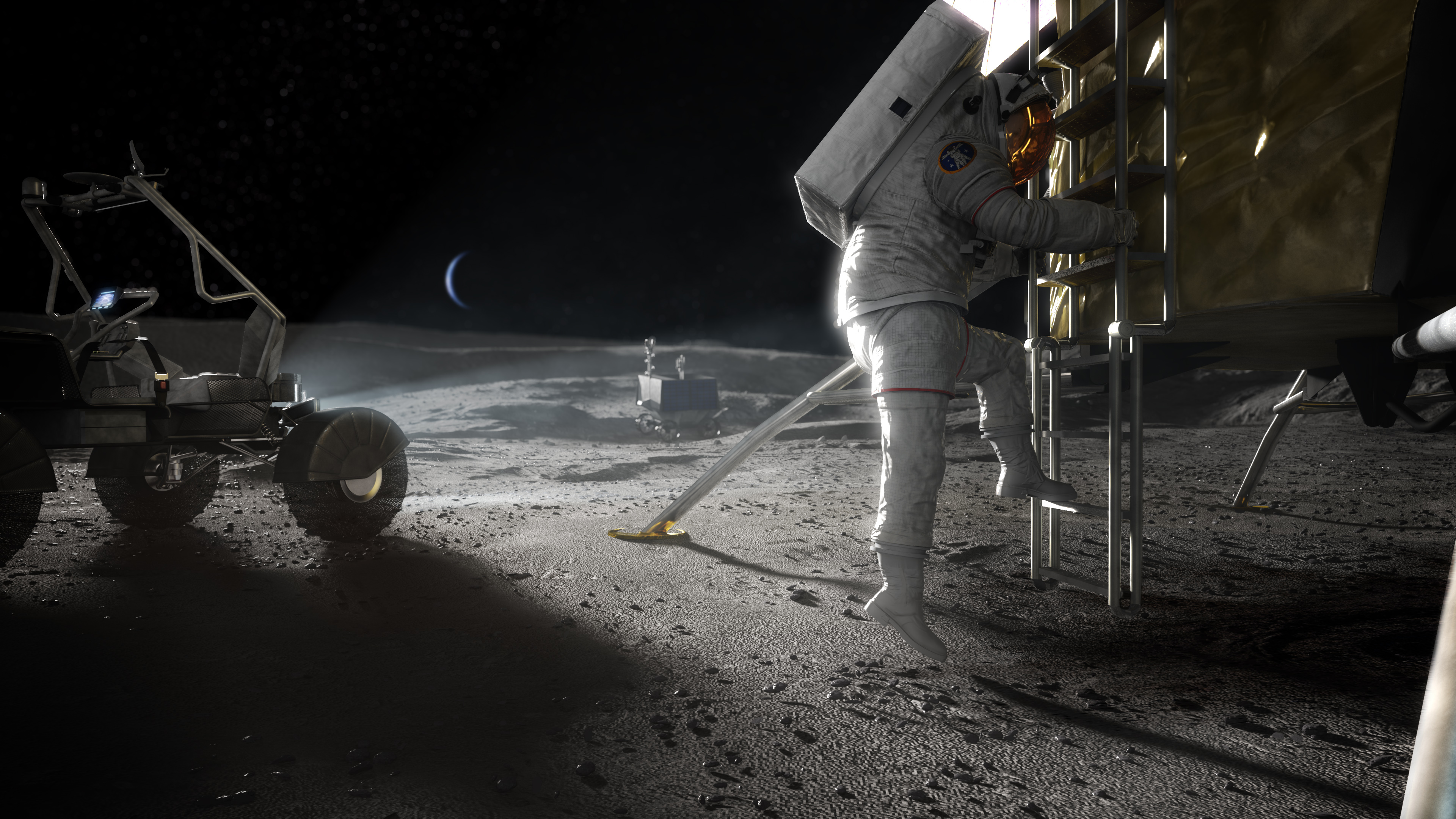NASA Plans Friday Shuttle Launch After Fuel Cell Glitch
CAPE CANAVERAL, Fla. - The clock is once more tickingdown to a Sept. 8 launch for NASA's space shuttle Atlantis after engineers allbut cleared a fuelcell issue aboard the spacecraft, mission managers said late Thursday.
Atlantis is now set to launch sixastronauts - commanded by veteran shuttleflyer Brent Jett - towards the International SpaceStation (ISS) at 11:40:32 a.m. EDT(1540:32 GMT) and deliver a new set of solararrays and two massive trusses to the orbital laboratory.
Only one final analysis standsbetween Atlantis and a Friday launch attempt here at the Kennedy Space Center(KSC), though shuttle officials expect a favorable result.
"We have had to stand down two daysto make sure we are safe to fly, we have gone the extra mile," NASA shuttleprogram manager Wayne Hale told reporters, adding that the risk of launchingAtlantis is less than replacing the fuel cell in question. "I don't feel likewe're not racing to the end of the [launch] window."
The announcement, which was notentirely unanimous among shuttle managers, comes one day after an electricalshort in Fuel Cell 1 - one of the three units that produce the electricity forall of Atlantis' systems - forced mission managers to scruba Wednesday launch attempt so engineers could track the problem.
The short stifled one of threealternating current (AC) power phases for the fuel cell's vital coolant pumpmotor, which prevent the generator from overheating in flight. While the othertwo phases continued to function perfectly, engineers wanted to make sure theywouldn't fail during Atlantis' 11-day flight and force the shuttle's STS-115astronauts to come home early without completing all their objectives - knownas a minimum duration mission.
Steve Poulos, NASA's orbiter projectsmanager, said the problem likely lies in thin wire for the PhaseA power loop in Fuel Cell 1's vital coolant motor. The phase will be switchedoff to avoid future shorts during Atlantis's launch, but engineers will notknow for sure what prompted the failure until they dissect Fuel Cell 1.
Get the Space.com Newsletter
Breaking space news, the latest updates on rocket launches, skywatching events and more!
"Until we take the fuel cell out, wewon't know exactly. It's a detective story," Hale said. "There is always theelement that we could be wrong."
Poulos said the Fuel Cell 1 cooling pumplast flew aboard NASA's Columbia orbiter during its STS-93mission, which experienced an electrical short during launch due to wiringissues. However, the fuel cell was found to be unaffected from that flight.Replacing the 255-pound fuel cell aboard Atlantis, especially at the launchpad, is no small order and runs a higher risk of causing more damage to theorbiter than launching the spacecraft, he added.
"We're good to go fly, we're readyto support this mission," Poulossaid. "I don't have a concern that we're going to lose this fuel cell goinguphill or during the mission."
Atlantis' STS-115 mission is set toinstall the $371.8 million Port 3/Port 4 (P3/P4) trusses and wing-like solarpanels to the port side of the ISS during a series of complicated roboticstasks and three spacewalks. The spaceflight is NASA's first dedicated ISSconstruction mission since late 2002 and the third shuttle launch since the2003 Columbia tragedy.
The spaceflight has been in a pinchof sorts.
Launch lighting rules are in place toallow cameras to scan Atlantis' external tank for any signs of falling foaminsulation - a debris hazard similar to that which doomed Columbia and its crew in 2003 - duringlaunch. The resulting footage would be used to guide future external tankmodifications.
While NASA's full window to launchAtlantis extended through Sept. 13, the space agency has also promised Russia's Federal Space Agency that itwould stand down after Sept. 8 to allow the liftoff of a Soyuz spacecraftcarrying a newcrew to the ISS.
The shuttle was expected to undockfrom the ISS on Sept. 17, with the Soyuz to launch towards the station one daylater.
NASA ISS program manager Mike Sufferdini said thatAtlantis can now launch on Sept. 9 and undock on Sept. 18 within hours of theSoyuz liftoff. This will maintain the much-needed buffer time for the spacestation's three-astronauts to jettison an unmanned Russian Progress cargo shipon Sept. 19 and be ready for the arrival of the Soyuz on Sept. 20.
"We have kind of a choreographyto do," Sufferdini said. "We have all thesevehicles flying around, coming and going at the space station."
Should Atlantis remain groundedFriday, Sufferdiniwill meet with his Russian counterparts to review the Sept. 9 launch plan.
- VIDEO: First Tasks of NASA's STS-115 Mission
- Gallery: Prepping Atlantis
- Complete Space Shuttle Mission Coverage
- NASA's STS-115: Shuttle Atlantis to Jump Start ISS Construction
- The Great Space Quiz: Space Shuttle Countdown
- Complete Coverage: ISS Expedition 13
Join our Space Forums to keep talking space on the latest missions, night sky and more! And if you have a news tip, correction or comment, let us know at: community@space.com.

Tariq is the Editor-in-Chief of Space.com and joined the team in 2001, first as an intern and staff writer, and later as an editor. He covers human spaceflight, exploration and space science, as well as skywatching and entertainment. He became Space.com's Managing Editor in 2009 and Editor-in-Chief in 2019. Before joining Space.com, Tariq was a staff reporter for The Los Angeles Times covering education and city beats in La Habra, Fullerton and Huntington Beach. In October 2022, Tariq received the Harry Kolcum Award for excellence in space reporting from the National Space Club Florida Committee. He is also an Eagle Scout (yes, he has the Space Exploration merit badge) and went to Space Camp four times as a kid and a fifth time as an adult. He has journalism degrees from the University of Southern California and New York University. You can find Tariq at Space.com and as the co-host to the This Week In Space podcast with space historian Rod Pyle on the TWiT network. To see his latest project, you can follow Tariq on Twitter @tariqjmalik.
